Canned foods are easily accessible and affordable, making them extremely popular these days.
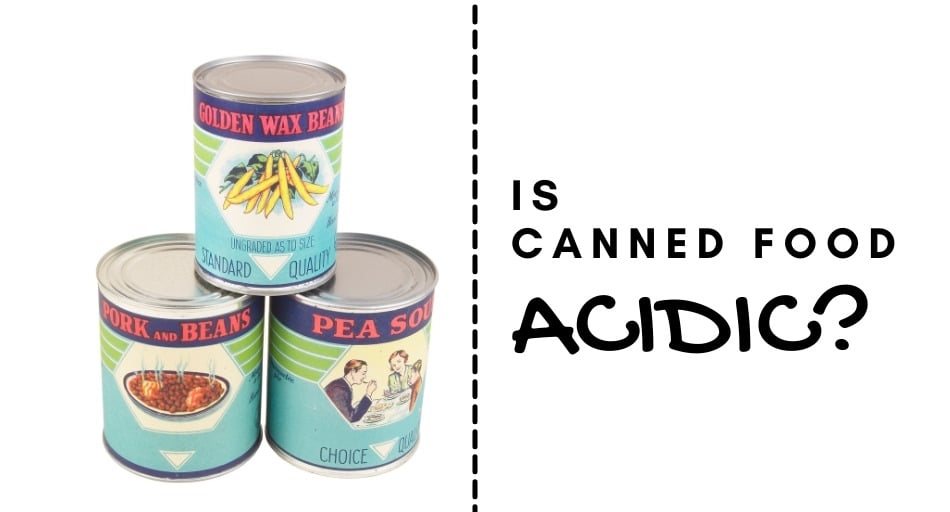
They can be stored for a very long time and are ready for whenever you need them. There is almost any type of food canned, from fish through vegetables to meats.
To properly and safely can food, you have to use various ingredients that might make them acidic.
So, is canned food acidic? Should people prone to heartburn eat them?
Table of Contents
Is canned food acidic?
Depending on the food, canned food tends to be acidic and acid-forming. Most canned foods are loaded with sodium, sugar, and preservatives, which add acidity. It’s also important to note that it’s impossible for canned food not to be acidic.
They have to be properly preserved to prevent the growth of any bacteria that can be harmful to your health. But the good news is that if you don’t experience heartburn very often, eating canned food is safe for you.
What is the pH level of canned food?
The pH level of canned food depends strongly on the type of food and how low the pH level has to be to prevent bacteria growth. Most canned foods, though, have a pH level below 7 to ensure the safest food.
For example, raw carrots have a pH level of 5.88-6.40, but canned carrots average around 5.18-5.22.
This is because they have to be prepared in a special way that involves adding some acidic liquid, such as vinegar or lemon juice.
The canning process varies depending on the food, but it usually involves processing, sealing, and heating up the can to preserve it, prevent spoilage, and kill any harmful bacteria.
This allows the food to remain edible and fresh for anywhere up to five years or sometimes even longer.
Is canned food bad for your health?
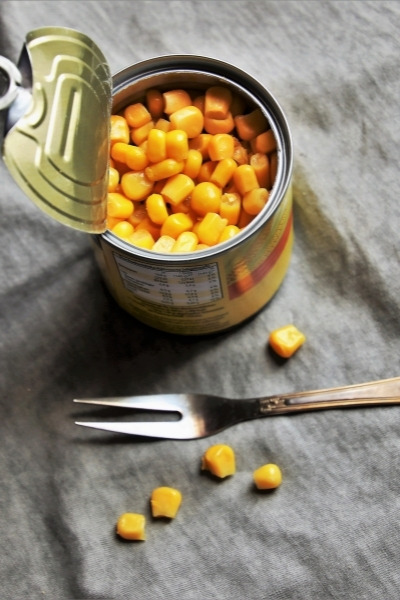
Some people believe that canned food contains harmful chemicals and preservatives, so it should be avoided.
For example, some studies have analyzed commonly bought canned foods for the presence of BPA and found it to be in over 90% of them.
CPA is a chemical used in food packaging. Even though there’s no clear link, some experts believe that BPA may increase your risk of heart disease, type 2 diabetes, and male sexual dysfunction.
But, if you’re consuming canned food in moderation, you have nothing to worry about.
When it comes to nutritionally differences between fresh foods and their canned counterparts, fats, protein, and carbs remain unaffected and in the same amounts.
The same seems to be true for most minerals and fat-soluble vitamins like vitamins A, D, E, and K.
Some studies show, though, that heating may damage water-soluble vitamins like vitamins C and B. Because of that, canned foods might be lower in these micronutrients.
While some nutrients might be lost during the canning process, some become even more abundant.
For example, studies show that tomatoes and corn release more antioxidants when heated, which makes canned versions of these veggies much higher in antioxidants.
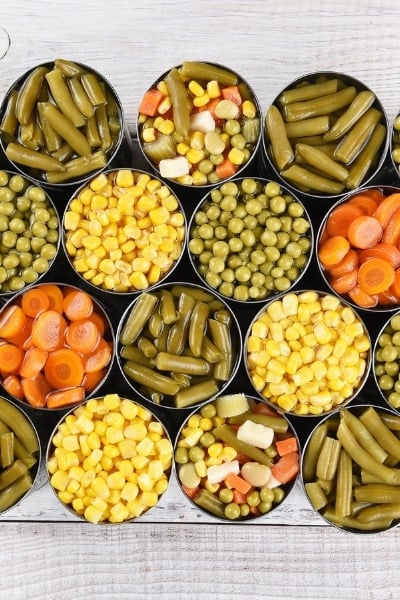
Antioxidants are compounds that help flush out harmful free radicals from your body, preventing oxidative damage and reducing your risk of several chronic conditions, including heart disease, diabetes, and even cancer.
Another thing to keep in mind and be careful about, especially if you can food yourself, is the presence of bacteria.
If canned food isn’t properly processed, it may contain deadly bacteria that lead to botulism. Botulism is a serious illness that may lead to paralysis and death if left untreated.
Most cases of botulism happen when people don’t can foods at home properly, but the same bacteria might be found in commercially canned food as well.
While it’s very rare, be careful and never consume foods from cans that are broken, dented, cracked, or leaking.
Can you eat canned food on acid reflux?
Whether you should consume canned food on a low-acid, GERD-friendly diet depends on how severe your symptoms are.
Some people might be able to tolerate slightly more acidic foods than others. So, always check how your body reacts to any new food you add to your diet.
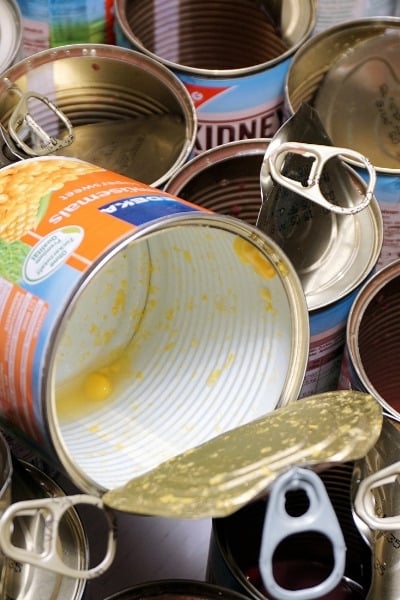
Other healthy people don’t have to worry about canned foods in terms of their acidity.
But some of them might contain harmful substances – especially if they’re not properly preserved – so make sure not to base your whole diet around them.
What type of canned food is the best for people with acid reflux?
If you’re prone to acid reflux symptoms like heartburn, make sure to choose foods packed with water or juice instead of syrup.
This can help lower the amount of sugar you’re taking in from them.
Sugar is not only bad for your health, but it also takes much longer to digest, forcing your stomach to produce more gastric acid.
This acid can then reflux up your esophagus, causing heartburn and other symptoms.
When you’re buying foods like tuna and mackerel, choose those packed with water or brine. This reduces the calories and the amount of fat you’re consuming.
Research shows that those who follow a high-fat, low-protein diet have a higher risk of severe acid reflux symptoms.
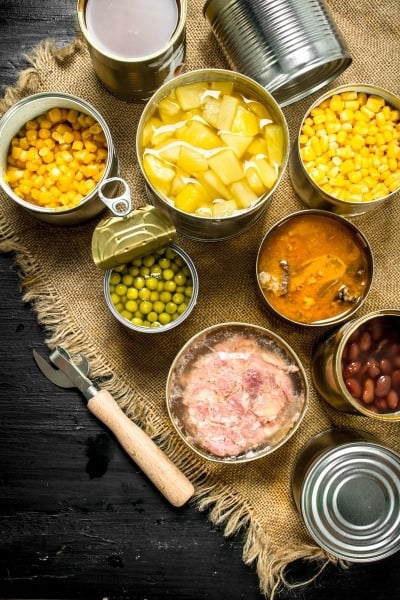
In addition, consuming fewer fatty foods can help you maintain a healthy weight and avoid various health issues.
What’s more, those with acid reflux and GERD should avoid foods like pasta sauces, canned tomatoes, canned tomato concentrate, as they’re very high in acid.
These are also loaded with sodium, which may not only irritate your digestive system but also increase your risk of high blood pressure and stroke.
While small amounts of these foods might be OK, try limiting them.
Conclusion
Mostly, canned foods are a safe addition to a low-acid diet, as long as you’re choosing the least acidic kinds like water-packed tuna or brine-packed carrots.
Also, opt for low-sodium, low-sugar, and low-fat canned foods to reduce the symptoms of acid reflux.
Also, remember that if a type of food is acid-forming when it’s fresh, the canned version will be acidic as well.
And the same goes for alkaline veggies and fruits, both raw and fresh.
Don't know what to drink? Check out these articles: 20 Most and Least Acidic Juices and 20+ Alcoholic Drinks Ranked by Acidity Level
